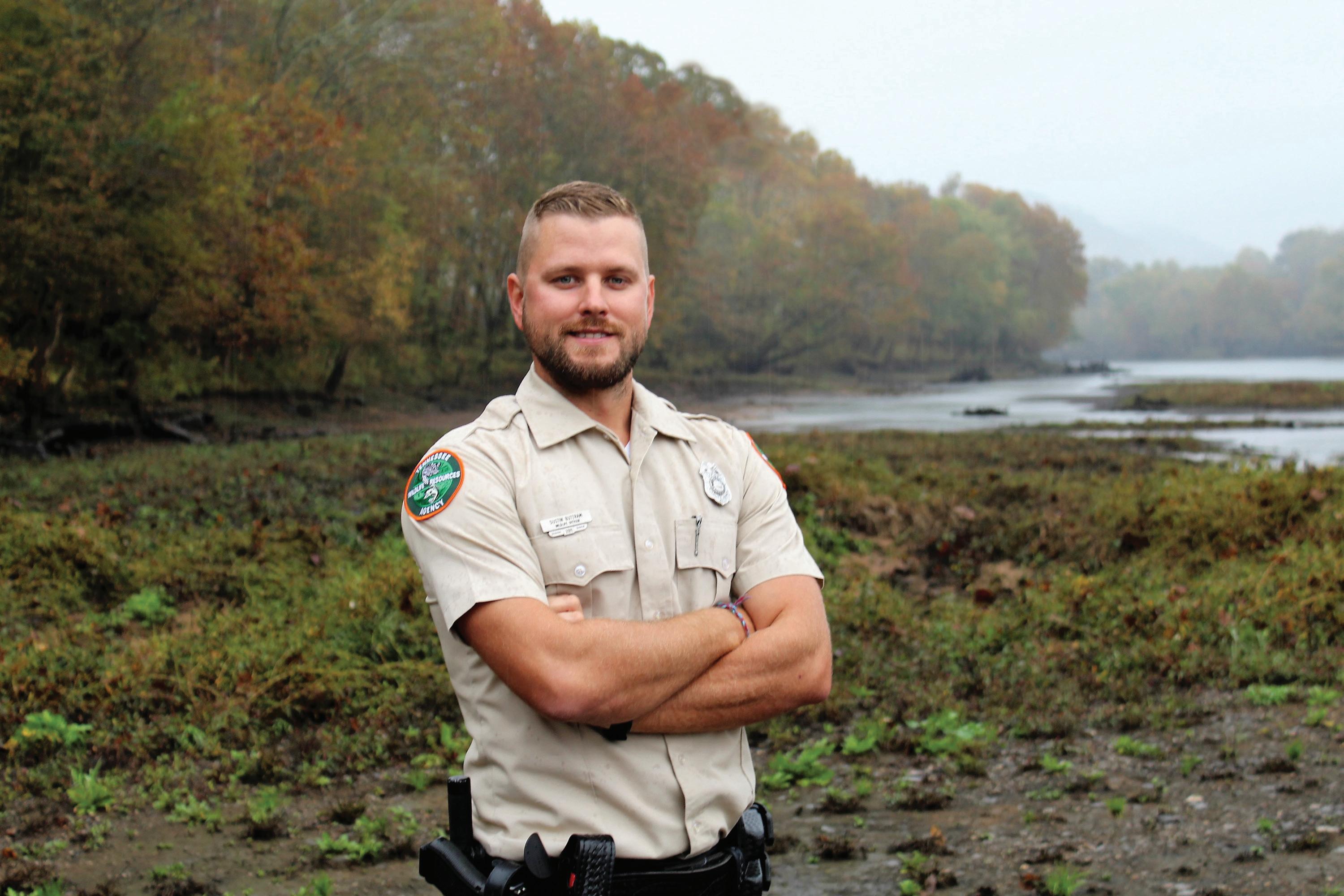
4 minute read
Make 2020 the year for Safer Boating
Make 2020 the Year for
When the boating season officially begins in 2020, boaters by the thousands will again make their way to Tennessee’s beautiful lakes, rivers, and reservoirs. Officer Dustin Buttram and other wildlife officers with the Tennessee Wildlife Resources Agency (TWRA) will be ready, day and night, rain or shine.
Advertisement
THE ROLE OF THE TWRA
The TWRA is the government agency in charge of patrolling the state’s waterways to check for safety and accident preparation. They are recognized by their uniform and when on the water, their green and orange striped patrol boats…and sometimes with blue, flashing lights. “Contrary to popular belief,” Buttram points out, “TWRA officers are not there to spoil the fun, they are working to see that boaters who are out on the lakes and rivers make it back home without incident.”
Every TWRA officer has the authority to stop and board any vessel subject to the State Boating Act. They may issue citations or, when necessary, they may arrest, on sight, without warrant, any person they see violating any provisions of the Act. Boaters who are signaled to stop must do so immediately and maneuver in such a way that the officer may come along side or come aboard. “Mostly,” said Buttram, “stops provide teachable moments and can ultimately save a life.”
BUCKLE UP FOR SAFETY
Buttram is a strong believer that safety education is the key to avoiding a tragedy. According to Buttram, the single best action a boater can take to prevent a fatality while boating is simply to wear a life jacket when out on the water. An estimated 84 percent of people who drown in boating accidents were not wearing life jackets at the time. Lifejackets on a boat, in a compartment, do no good when an accident occurs.
He said watercraft tend to present more hazards than landbased vehicles because water is more inherently dangerous and very few people who operate or ride in boats and personal watercraft are often not properly trained to operate them. In fact, research shows that some 77 percent of all boating accidents are caused by people with no boating education, with 5.5 fatalities occurring for every 100,000 people in the water. Add in alcohol to the mix and the results can be deadly.
Make 2020 the Year for Safer Boating
By Peggy Georgi
TWRA Officer Dustin Buttram encourages anyone who plans to boat this season to invest in a boater education course. The TWRA offers a variety of helpful resources and courses throughout the state, many free of charge. Buttram, pictured at the Caney Fork River, said swift currents and quickly moving waters below the dam make the rivers more dangerous.

SAFETY EDUCATION SAVES LIVES
“Like anyone driving a vehicle on the road, boating, and watercraft operators have a responsibility to operate their vehicles safely on the water,” said Buttram, who has seen his share of disastrous accidents that simply started out as just a fun day on the water. “During the busy boating season, our lakes and waterways are filled with swimmers, boaters, skiers, wakeboarders, tubers, divers, fisherman, and all types of watercraft including motorboats, houseboats, luxury vessels, personal watercraft, and commercial vessels day and night,” said Buttram, who currently serves TWRA’s District 31 which includes Center Hill, Cordell Hull, Great Falls, and Dale Hollow reservoirs and the Caney Fork River. Buttram has earned a respected reputation for his focus on safety education. Buttram and boating officers like him know of the dangers present in local waterways. He is usually the lead officer in accident investigation in his area and assists rescue squads and sheriff’s officers in the search for drowning victims on Center Hill and Dale Hollow Reservoirs. Named the Tennessee Boating Educator of the Year in 2019 by the National Association of State Boating Law Administrators (NASBLA), Buttram has embraced the challenge of providing boating education opportunities to the public, teaching a record number of boating safety classes and certifying hundreds of students who are required to have boating education by law, plus numerous others not required by law to have the certification.
Buttram, like other TWRA Officers, can often be found patrolling the water on enforcement boats, personal watercrafts, and kayaks to check for safety violations. To keep boaters safe, among the factors that officers look out for are individuals boating under the influence, young operators, and those operating their vessel recklessly. All of these can result in jail time, suspended license, and/or up to thousands of dollars in fines.
“Our primary goal is education and safety,” Buttram noted. “We really don’t want to work an accident, fatality, or drowning. Any day that we don’t is a good day.”










